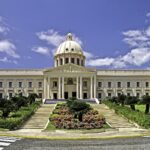Blog Post
Colombia’s Constitutional Court enrages activists by refusing to legalize abortion
By Jonathon Van Maren
Over the past few weeks, liberal news outlets like the New York Times have salivated at the idea that Columbia’s Constitutional Court might legalize abortion, making it one of the first Latin American countries to do so. Instead, the Court ruled yesterday against legalizing abortions in the first 16 weeks of pregnancy, upholding the status quo. Currently, abortion is permitted when the mother’s life is purportedly at risk, if the child is deformed, or in cases of rape. Abortion activists had hoped the Court would terminate Columbia’s restrictions.
It is interesting to note how these stories are reported on in the press. While some like to claim that the media is neutral rather than pro-abortion, news stories are written as if it is a given that the child in the womb is not a child, and that abortion activists are eminently reasonable in their requests. Abortion bans are called “stringent” or “draconian,” with an emphasis on the women who seek abortions illegally. Imagine if journalists decided to note that “Columbia upheld laws protecting rights for human beings in the womb” or reported on new research indicating that children in the womb may feel pain as early as thirteen weeks? Instead, stories on abortion are written as if nobody is actually being aborted.
Predictably, news outlets obediently ran with press releases from abortion industry shills such as Amnesty International, which noted that “the court has decided to continue restricting women’s sexual and reproductive rights instead of setting a positive example for the region.” They did not explain what abortion had to do with sexual rights, or how reproductive rights permit already-existing children to be killed after reproduction has taken place. Instead, the media reported this story as if it should be taken for granted that the Columbian Constitutional Court has ruled against human rights rather than for the human rights of pre-born children.
Most countries in both Latin America and the Caribbean still ban most abortions, and six countries ban the killing of pre-born children in all circumstances. In Argentina, where millions of pro-lifers have taken to the streets over the past two years to protest attempts to legalize abortion, the president has decided to throw in with the abortion activists and put forward an abortion legalization bill in the Congress, and pro-lifers fear that this attempt might be successful. They hope the bill can be stopped in the Senate, as it was in 2018. Evil never sleeps.
In the meantime, a wonderful victory in Colombia—one which pro-lifers should celebrate.









It is Colombia not Columbia